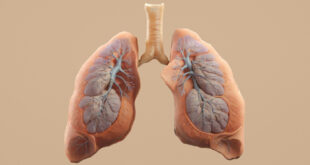In a fast-paced, overstimulated world, depression has emerged as a common but deeply personal struggle for millions. While modern medicine offers solutions such as antidepressants and cognitive therapies, many individuals seek natural alternatives that work in harmony with the body and mind. Ayurveda for Depression provides such an option—an ancient Indian healing system that views mental health as an intricate balance of mind, body, and spirit.
This blog explores how Ayurveda addresses depression holistically, offering insights into its causes, Ayurvedic therapies, diet, lifestyle changes, and herbal remedies that can gently restore emotional well-being.
Also Read: Ayurveda for Women’s Health: Hormonal Balance and Wellness
Understanding Depression in Ayurveda
In Ayurveda, mental health is governed by Manas (mind) and its balance is influenced by the three doshas—Vata, Pitta, and Kapha—and the three gunas—Sattva (clarity), Rajas (activity), and Tamas (inertia).
Doshas and Depression
- Vata-type Depression: Characterized by anxiety, restlessness, fear, insomnia, and dryness in the body.
- Pitta-type Depression: Includes irritability, anger, perfectionism, self-criticism, and burnout.
- Kapha-type Depression: Shows up as lethargy, sadness, excessive sleep, weight gain, and hopelessness.
Each type demands a unique approach to healing, as Ayurveda believes in personalized treatment rather than a one-size-fits-all model.
Causes of Depression from an Ayurvedic Perspective
Unlike the purely chemical imbalance theory in allopathy, Ayurveda recognizes multiple contributing factors to depression:
- Imbalance of doshas
- Suppression of natural emotions
- Improper diet (Ahara)
- Unhealthy lifestyle (Vihara)
- Disconnection from nature and spiritual practices
- Accumulated toxins (Ama)
- Weak Agni (digestive fire)
- Lack of purpose or Dharma
This comprehensive view makes Ayurveda for Depression especially powerful—it treats the root, not just the symptoms.
Also Read: Ayurveda for Asthma and Respiratory Disorders: What Works
Signs and Symptoms According to Ayurveda
Ayurveda categorizes the symptoms of depression based on doshic imbalances:
| Dosha Type | Symptoms |
|---|---|
| Vata | Anxiety, fear, restlessness, racing thoughts, constipation, cold extremities |
| Pitta | Frustration, anger, irritability, intolerance, perfectionism, heartburn |
| Kapha | Fatigue, sadness, low motivation, oversleeping, weight gain, mental fog |
Understanding your dosha type is the first step toward personalized Ayurvedic healing.
Holistic Treatments in Ayurveda for Depression
1. Diet and Nutrition (Ahara)
Food is considered medicine in Ayurveda. A sattvic (pure) diet helps elevate the mind and reduce tamas (darkness or inertia).
Recommended Foods:
- Warm, fresh, home-cooked meals
- Ghee (clarified butter)
- Whole grains like rice, oats, and quinoa
- Leafy greens and colorful vegetables
- Spices like turmeric, ginger, cinnamon, and cardamom
- Herbal teas (tulsi, chamomile, ashwagandha)
Foods to Avoid:
- Processed and packaged food
- Caffeine and alcohol
- Red meat
- Cold and stale food
- Excessively spicy or oily food
Each dosha requires specific dietary guidelines to stay balanced. For example, Vata types need warm, grounding foods; Pitta types benefit from cooling foods; Kapha types thrive on light, energizing meals.
2. Herbal Remedies (Aushadhi)
Herbs are essential in Ayurveda for Depression, gently supporting emotional healing without side effects.
Top Ayurvedic Herbs:
- Ashwagandha: Reduces cortisol, calms the mind, and builds resilience.
- Brahmi: Boosts cognitive function and reduces anxiety.
- Jatamansi: Calming and grounding for the nervous system.
- Shankhpushpi: Promotes clarity, reduces stress and enhances memory.
- Vacha: Helpful in reducing mental dullness and tamas.
Note: Always consult a certified Ayurvedic practitioner before starting herbal treatments.
Also Read: How Ayurveda Can Improve Your Overall Health Naturally
3. Lifestyle (Vihara)
Daily Routine (Dinacharya):
A disciplined daily routine supports mental clarity and emotional balance. Include:
- Wake up early (before sunrise)
- Oil pulling and abhyanga (self-massage)
- Light exercise or yoga
- Mindful eating and scheduled meals
- Sleeping early (by 10 PM)
Sleep Hygiene:
Good sleep is a foundation for emotional wellness. Use calming rituals before bedtime:
- Warm milk with nutmeg
- Foot massage with sesame oil
- Meditation or journaling
4. Panchakarma: Detox for Mind and Body
When toxins (Ama) build up in the mind and body, Panchakarma offers deep cleansing and rejuvenation. The five-fold detox therapies include:
- Vamana (emesis)
- Virechana (purgation)
- Basti (enema)
- Nasya (nasal administration)
- Raktamokshana (bloodletting)
Panchakarma helps reset the body and balances doshas, making it highly effective in chronic depression cases.
5. Yoga and Pranayama
Yoga is the sister science of Ayurveda and works synergistically to uplift mental health.
Recommended Asanas:
- Balasana (Child’s Pose)
- Setu Bandhasana (Bridge Pose)
- Viparita Karani (Legs-Up-the-Wall Pose)
- Sukhasana with Forward Bend
- Surya Namaskar (for energizing Kapha)
Pranayama Techniques:
- Nadi Shodhana (Alternate Nostril Breathing): Balances left and right brain hemispheres.
- Bhramari (Bee Breath): Calms racing thoughts and anxiety.
- Sheetali/Sheetkari: Cools the system (good for Pitta types).
Daily practice of 15–30 minutes helps in long-term emotional balance.
6. Meditation and Mantra Healing
Ayurveda recommends meditation for increasing Sattva, the quality of peace and wisdom.
Effective Practices:
- Mindfulness meditation
- Trataka (candle gazing)
- Japa (chanting mantras): “Om Shanti,” “So Hum,” or “Om Namah Shivaya”
- Listening to binaural beats or healing ragas
Even 10 minutes of silent sitting daily can rewire emotional patterns and bring a sense of stillness.
7. Spiritual Practices
Depression often stems from disconnection—from others, nature, or a higher purpose. Ayurveda emphasizes Dharma (life purpose) and Bhakti (devotion) as powerful tools to heal the heart.
Suggestions:
- Spend time in nature
- Practice gratitude journaling
- Visit temples or sacred spaces
- Engage in acts of kindness or seva (selfless service)
- Read spiritual texts (Bhagavad Gita, Upanishads)
Spiritual nourishment helps dissolve ego-based suffering and opens the heart to peace.
Success Stories and Real-life Benefits
Thousands across the globe have found relief through Ayurveda for Depression. Patients often report:
- Improved sleep quality
- Better digestion
- Reduced anxiety and emotional reactivity
- Increased energy and motivation
- A deeper connection with themselves and others
Unlike conventional antidepressants, Ayurveda aims at permanent balance rather than temporary symptom management.
Precautions and Considerations
While Ayurveda is natural, it must be approached responsibly:
- Always consult a certified Ayurvedic practitioner.
- Do not abruptly stop prescribed antidepressants.
- Ayurveda works gradually; consistency and patience are key.
- Seek urgent medical help if you experience severe symptoms like suicidal thoughts.
Modern Science Meets Ayurveda
Recent research supports many Ayurvedic practices:
- Ashwagandha has been proven to reduce cortisol and anxiety levels.
- Yoga and meditation increase serotonin and dopamine production.
- Balanced diet and lifestyle improve gut-brain health, directly influencing mood.
This convergence makes Ayurveda not just a traditional path, but also a scientifically backed solution for emotional well-being.
Conclusion: Return to Inner Harmony
Ayurveda for Depression offers a profound and natural way to reclaim mental wellness—not by suppressing symptoms, but by nourishing the mind, body, and soul. With ancient wisdom, conscious living, and a commitment to inner balance, it is possible to rediscover joy, purpose, and vitality.
Remember, healing is not linear. It’s a journey inward, and Ayurveda lights the way.
 Well Health Organic
Well Health Organic




